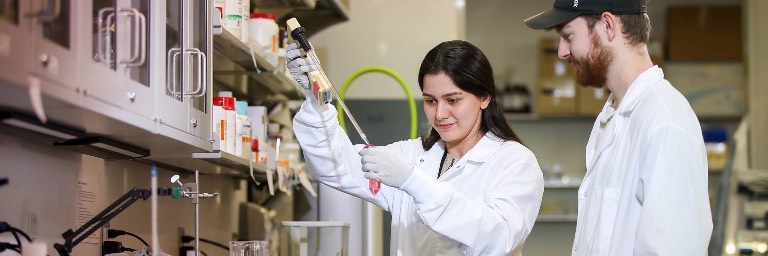Master's in Biomedical Sciences
Engage in research that enriches our understanding and treatment of pathophysiological and neurodegenerative diseases.
The Master of Science in Biomedical Sciences degree prepares you for a career in biomedical science education or a technical lab science career. It's the graduate degree you pursue if you want to improve healthcare and deepen your knowledge of diseases and immunology in a research laboratory setting.
- Program type:
- Master's Degree
- Format:
- On Campus
- Est. time to complete:
- 3 years
- Credit hours:
- 30
Why earn a master's in biomedical sciences?
Master's in Biomedical Sciences at UND
-
Contribute to research at one of the nation's premier facilities for the study of drug addiction and neurodegenerative diseases.
-
Utilize the most advanced technology in our 20,000-square-foot Center for Biomedical Research.
-
Obtain a university stipend by accepting a teaching or research assistantship.
-
Network with your colleagues through the Biomedical Graduate Student Association.
-
Participate in research. UND's Department of Biomedical Sciences ranks #2 in the nation for research funding from the National Institutes of Health.
-
Learn at the state-of-the-art School of Medicine & Health Sciences building and support research with regional, national and international entities.
What can I do with master's in biomedical sciences?
Master's in Biomedical Sciences Courses
Leaders in Biomedical Science
Associate Professor of Biomedical Sciences Sarah Sletten is a Top Hat Educator nominee at UND.
